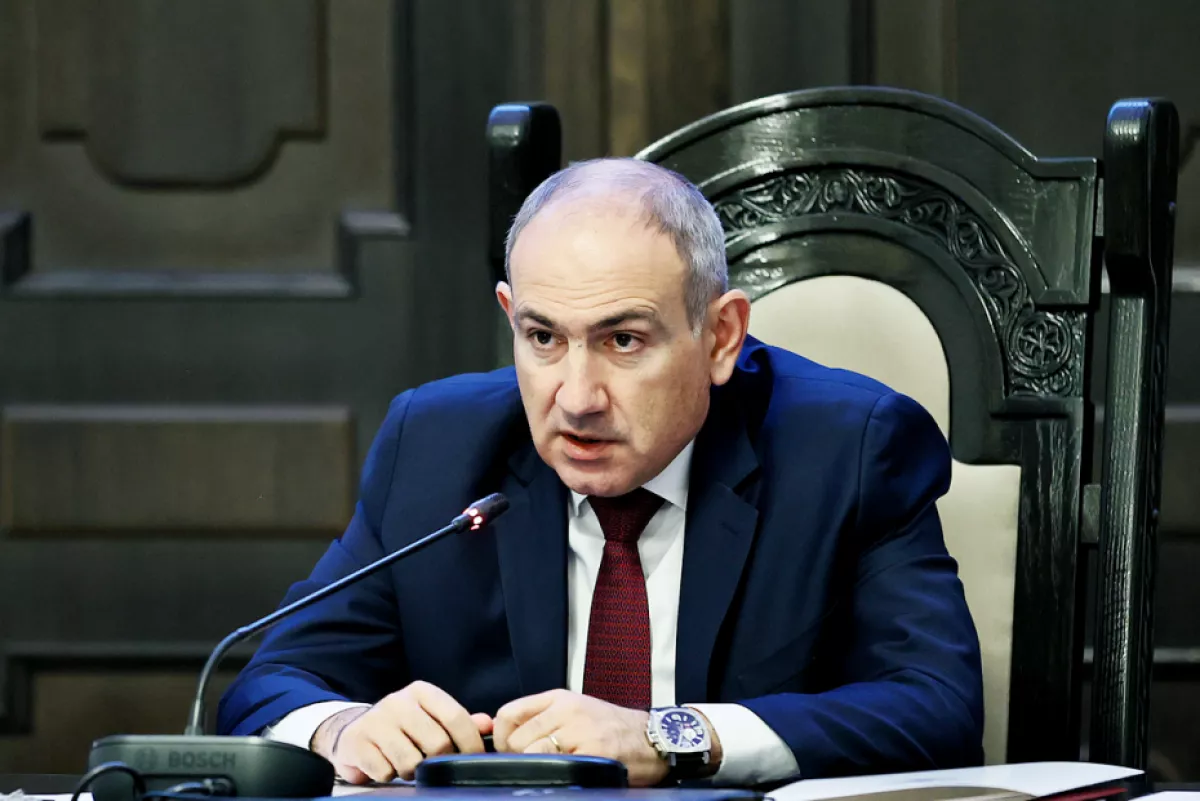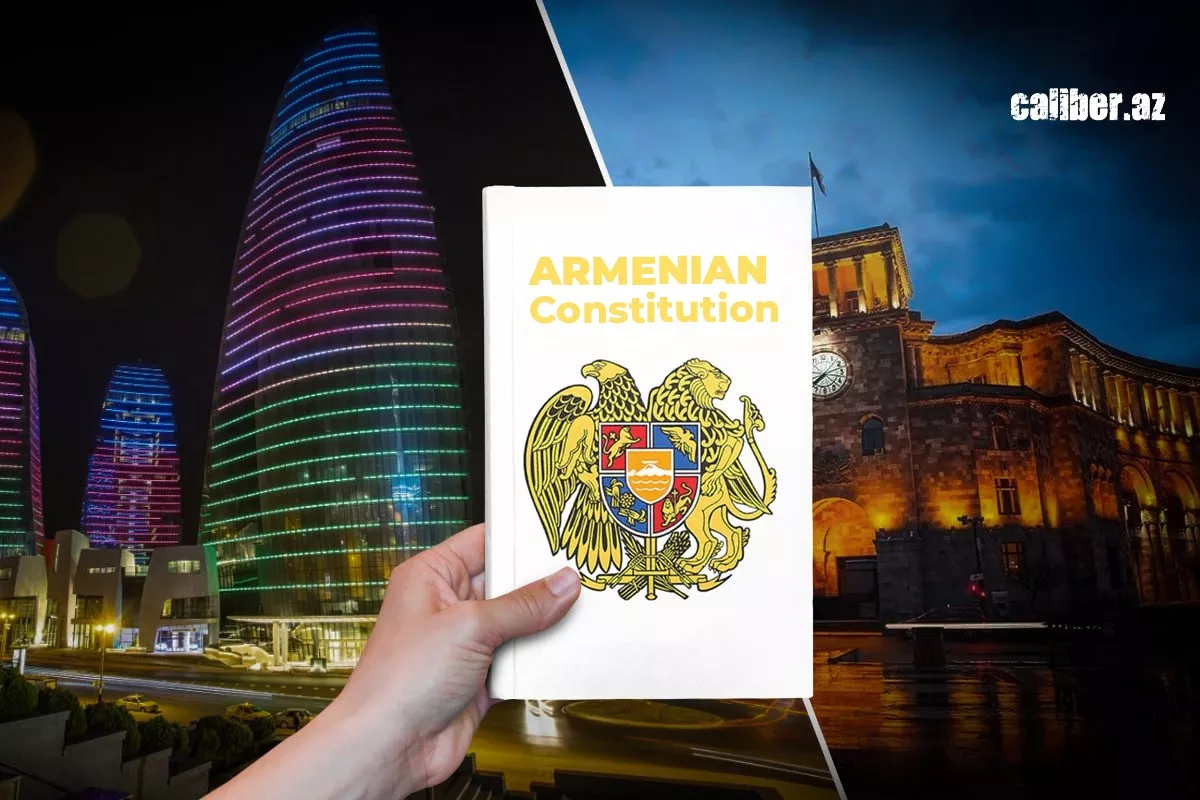“Azerbaijan will not play along in the event of a coup in Armenia” A candid interview with Russian expert
As Armenia prepares for parliamentary elections and a constitutional referendum, the region’s political balance remains delicate. Caliber.Az spoke with Russian expert and post-Soviet affairs specialist Kirill Krivosheev to assess the prospects for Armenian-Azerbaijani settlement, the role of external powers, and the potential risks that could derail peace efforts.
Q: Kirill, at the start of our conversation, we would like to hear your opinion on the prospects for Armenian-Azerbaijani settlement, considering the agreements already signed between Baku and Yerevan in Washington.
A: I think that the main steps still need to be taken and are likely postponed until next year. After the elections in Armenia, discussions on the constitution and the signing of a peace treaty will continue. For now, the parties are trying to take symbolic steps to ease tensions, including statements on transit resolution and visits by Azerbaijani experts to Yerevan.
As for Washington, its role is greatly overstated. So far, it has not offered anything that could not have happened without its involvement. The declaration of intent to sign an already agreed-upon peace treaty is not an achievement. Regarding the “Trump road,” we still have no substantial information. Apparently, negotiations are ongoing, but a successful outcome is not guaranteed.
Q: Any specifics regarding TRIPP – the “Trump Route” – will emerge over time. For now, it’s unclear whether Nikol Pashinyan will be able to successfully hold parliamentary elections and a constitutional referendum. What’s your take?
A: The elections will most likely happen, but with a number of highly questionable actions – arrests of political opponents on dubious grounds, use of administrative resources. Look at how elections unfolded in Moldova – it will be similar, and possibly worse. And this poses a huge moral dilemma – yes, it’s not easy to feel sympathy for people like Vardan Ghukasyan or Bagrat Galstanyan. However, if we are proponents of democratic values, we must stand for the rights of everyone, even the most disagreeable individuals or political forces. For example, I already foresee scandals around Samvel Karapetyan’s "Mer dzevov" ("In Our Way") movement. By spring, a new politician might emerge, someone we don’t even know yet. The Armenian authorities are currently in such an emotional state that they will be looking for levers to use against them. This is very dangerous and undermines trust in democracy. Although, of course, some will argue that supporters of a new war and opponents of sovereignty must not be allowed to come to power.

As for the referendum, it’s even more complicated. I think it’s too early to talk about it. Things will unfold according to new circumstances.
Q: Do you think that upcoming political processes in Armenia could be influenced by external factors, for example, Russia?
A: I’ll quote from an article published in Vedomosti, which frankly describes Russia’s plans. I quote: “Kiriyenko’s task in Armenia will be to use soft power to advance Russian interests,” says another source close to the presidential administration. “They will operate roughly as they did in the last elections in Abkhazia.” The interlocutor believes that Nikol Pashinyan will still win the upcoming elections: “But the issue now is not the elections, it’s Russia’s presence there.” According to the source, there are currently no pro-Russian politicians in Armenia apart from the former ones – Serzh Sargsyan and Robert Kocharyan: “So there is no one to speak for Russia there.”
Q: In other words, you share the view of your colleagues?
A: I base my opinion on what Russian media report from their sources.
Q: You somewhat avoided the question. Do you think that Russian Foreign Minister Sergey Lavrov’s recent statement—that Moscow will use all available means to prevent the West from pulling the South Caucasus and Central Asian countries away from Russia—was a threat, or does Russia really have the potential to stage coups in post-Soviet states?
A: I haven’t avoided the question, but I don’t want to give the answers people expect. Most likely, that’s how things would play out. A coup is a radical scenario, after which it’s almost impossible to retain power. More likely, Russia would support emerging pro-Russian forces. Lavrov’s statement is propaganda; Russia lacks the real resources to prevent countries from making choices based on their priorities.
Let’s imagine a coup in Armenia. What happens afterward? Who would the new government rely on? It’s far more reasonable to make Pashinyan weak and manageable by having a sufficiently strong pro-Russian opposition in parliament. Again, look at Moldova—this is how it was done there. The Shor (political party - ed.) network—is that an attempt at a forceful coup? No, it’s a subtler instrument. If Russia had real coup-making potential, it would have been used much earlier. But as you can see, it doesn’t. Even if it did, Moscow fully understands the risks of such a path. It’s far too simplistic.
Q: And what are the risks?
A: Azerbaijan, in that case, would not play along either. We understand perfectly well that these pro-Russian politicians would say things that make sliding into a new war very likely. The entire peace process would be flushed down the drain. And is that really what Russia wants? All the responsibility would fall on them.
Q: Judging by the systematic attacks on Armenia’s current authorities, it seems Russia has already placed its bets on the pro-Russian Serzh Sargsyan and Robert Kocharyan. Is that so?
A: I think Russia is interested in cultivating new figures. And they are actively doing so—look at how Moscow engages with the youth, for example through the ANO Eurasia structure. There’s enough time for new faces to emerge. It’s possible we don’t yet know the main figure of the Armenian elections.
Q: Intriguing. But you don’t dispute that the constitutional referendum in Armenia will take place?
A: No. But Nikol Pashinyan will need to make it appear that it has nothing to do with Azerbaijan’s demands. And the question is whether Baku will play along. Overall, as you understand, Azerbaijan’s role in these elections is significant. Both Pashinyan and his opponents will respond to rhetoric from Baku. I believe that the Armenian authorities’ demonstrative refusals to amend the constitution are part of a pre-election game. But it’s logical—they shouldn’t appear pleased that Azerbaijan is forcing their hand. Naturally, voters are against that.

Q: Does this mean that amendments excluding territorial claims against Azerbaijan will be added to the Armenian constitution following the referendum?
A: They will. But I disagree with Baku’s position on them. They do not guarantee anything and are largely a symbolic gesture: “See how we dominate the defeated opponent.” That’s all.
Q: From what you’re saying, the official Armenian renunciation of territorial claims against Azerbaijan, enshrined in the Republic’s constitution, does not guarantee that Yerevan won’t later violate the terms of a peace treaty?
A: I believe that forcing Armenia to amend its constitution is a dangerous political move, giving a platform for revanchist supporters to consolidate. It gives them a topic to discuss, a reason to unite. Yet, this step carries no practical consequences. Tell me, what have most post-Soviet presidents done when their final term ended according to the constitution? They changed it, simply and without complications. In the post-Soviet space, the constitution is not a sacred document; it’s more like a suit patched in ten places—you change it to suit the political situation. Politicians start wars because they can and want to, not because it’s written in the constitution. And yes, if we imagine a fantastical scenario where in 30 years a pro-war figure comes to power in Armenia, no constitution will stop them.
Q: Possibly. However, in that case, the responsibility for any breach of peace in the region would lie solely with Armenia.
A: But according to Azerbaijan’s position, Armenia bears responsibility for the entire conflict anyway. So what does that change?
Q: Does Baku have any guarantees that if Azerbaijan now makes concessions to Yerevan and signs a peace treaty without corresponding amendments to the RA constitution, a future Armenian government coming to power in thirty years won’t make claims on Karabakh?
A: There are guarantees, but of a different kind. Look at the budgets of Armenia and Azerbaijan. To imagine Armenia catching up militarily over several decades, we would have to make an impossible assumption—for example, that humanity abandons oil and gas and Azerbaijan loses its exports. But that won’t happen. It’s about potential first, and second, about intentions. In Azerbaijan, people keep saying how weak and insignificant Armenia is, yet simultaneously claim it poses a terrible threat. That’s a logical contradiction.
Q: You’re mistaken. Unlike Armenia, Azerbaijan has an undeniable argument—thirty years of illegal Armenian occupation recognised by the whole world. Let’s end our conversation on a positive note. Will there be a peace agreement between Baku and Yerevan?
A: There will be. But that doesn’t mean all contradictions will be resolved instantly. The path to peace is still a long one.








